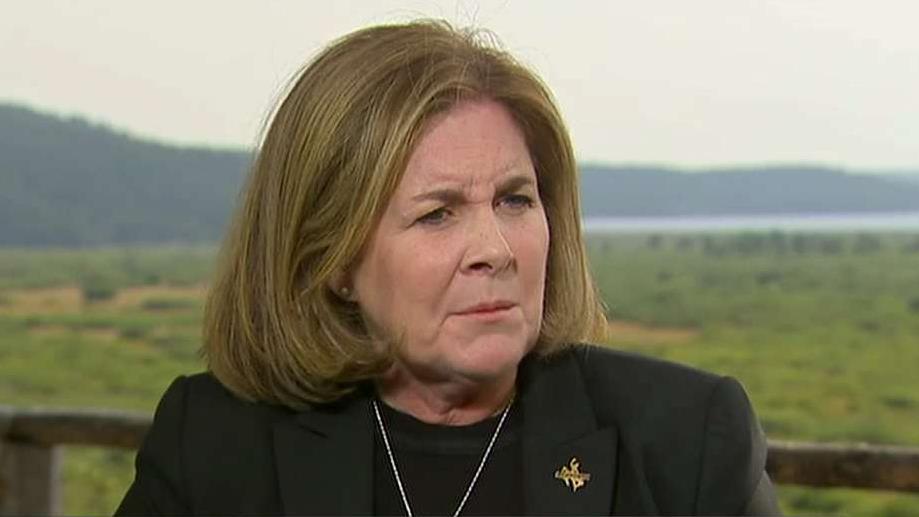Kansas City Fed chief supports central bank independence
The head of the Federal Reserve Bank of Kansas City said it’s not surprising that President Trump recently said he is “not thrilled” with his Fed appointee, Chairman Jerome Powell, for raising interest rates and said the U.S. central bank should do more to help boost the economy.
“Expressions of angst at a time when there are higher interest rates is not unique to this administration,” said Esther George. “So we’ve seen this before. We know higher rates do cause adjustments in the economy.”
But George also said the U.S. central bank will remain faithful to its congressional mandate to both promote full employment and preserve the value of the currency, even – or especially – when political interests complain.
“I think what’s important for the public to remember is Congress understood this tension might exist between a central bank which is responsible for the money supply and those that have other angles in the economy and so they put important firewalls in place to allow an institution like the Fed to keep its focus on the public interest and the long-run nature of the economy and that’s what we are doing and what I continue to do.”
George made the comments in an interview with FOX Business’ Edward Lawrence, broadcast Thursday from the Fed’s annual economic symposium in Jackson Hole, Wyoming.
The Kansas City Fed president, who is hosting the meeting, describes the economy as firing on all cylinders.
“We are at a good point in the economy, which has allowed the Federal Reserve to begin to remove some of the stimulus we’ve put in place years ago,” said George.
George was asked how close to normal is the economy?
“It’s a great question and its one my colleagues and I continue to explore, because our objective is to maintain the long-run growth of the economy as best we can and try to understand when we get to normal,” she said.
“It’s a function of knowing, remember this policy acts with lags, so each time we made an interest rate increase that will flow through the economy after the fact somehow. So that’s why you focus carefully on the data.”
The latest round in the trade war between the U.S. and China got underway Thursday morning. The two countries put into effect 25 percent tariffs on $16 billion worth of each other's goods. That makes it $50 billion worth of imports subjected to tariffs on either side since early July, and more are in the pipeline, adding to risks for global economic growth.
“This is an area that I watch very carefully. I consider it a downside risk from the standpoint that it’s hard to gauge,” said George. “If this is all we see, then maybe we conclude that we’ll work through the system and it won’t affect an economy the size of ours.”
“On the other hand, if it looks like this will continue, if there is some persistence to these discussions, if it leaves businesses feeling uncertain, that could flow through to holding back on investment or less investment and that’s something I want to watch carefully to see if it shows up in the data at some point.”
George addressed concerns that interest rates on long-term bonds are falling below the level of shorter-length bonds, something known as an “inverted yield curve” and that can signal a coming recession.
“We should look at the yield curve, because as history tells us, that’s when the yield curve flattens and then inverts, we’ve experienced recessions, she said. “Obviously nobody wants to do that. So the question is what circumstances led to that inversion and why are we seeing a flattening yield curve. That is where the debate is right now.”
George said the Fed pays special attention to the yield curve, but it’s not their sole objective.




















